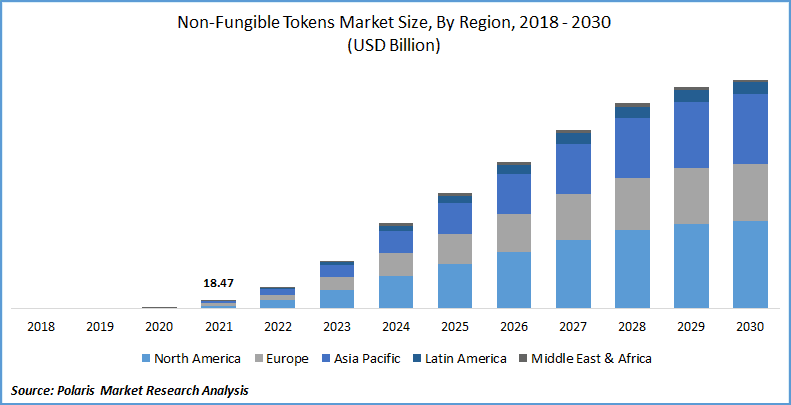In today’s digital age, NFT (Non-Fungible tokens) marketplaces have emerged as a revolutionary force, transforming the way we perceive and trade digital assets. With the rise of blockchain technology, NFTs have taken center stage, enabling artists, creators, and collectors to participate in a new paradigm of ownership and value exchange. In this article, we’ll delve into the fascinating realm of NFT marketplaces, unraveling their significance, how they function, and the impact they’ve had on various industries.
- What exactly are NFTs and how does their functionality operate?
NFTs are unique digital tokens that represent ownership of a specific item or piece of content, often utilizing blockchain technology to establish authenticity, provenance, and scarcity.In contrast to cryptocurrencies like Bitcoin or Ethereum, NFTs possess indivisibility and cannot be swapped in a direct equivalent manner. Each NFT is distinct and possesses metadata that can include anything from digital artwork, music, virtual real estate, collectibles, and more. - The Birth of NFT Marketplaces
The inception of NFT marketplaces has provided a platform for creators to showcase their digital assets to a global audience, while enthusiasts and collectors can discover, bid on, and purchase these unique items. Marketplaces like OpenSea, Rarible, and NBA Top Shot have gained immense popularity, becoming hubs for NFT transactions and interactions. - Empowering Digital Artists
NFT marketplaces have given digital artists a groundbreaking opportunity to monetize their creations like never before. Traditional barriers to entry have been shattered, allowing artists to receive fair compensation for their work directly from buyers, without intermediaries. This shift in the creative economy has sparked a renaissance of digital art, where artists can flourish by engaging with a community that values their unique talents. - Collectibles and Memorabilia
Collectors have found a new frontier in NFT marketplaces, as rare and limited-edition digital collectibles have become sought-after treasures. From virtual trading cards to iconic moments in sports and entertainment, NFTs have brought an exciting dimension to collecting, offering tangible ownership of digital memorabilia. - Real-World Applications
Beyond art and collectibles, NFTs have permeated various industries. Real estate ventures are exploring virtual land ownership through NFTs, while musicians are releasing albums and concert tickets as exclusive tokens. NFTs also hold the potential to prove ownership of physical assets like luxury goods and enhance supply chain transparency. - Environmental Concerns and Solutions
The environmental implications of NFTs have become a topic of concern due to the energy consumption linked with blockchain technology. However, efforts are underway to address these issues, with some marketplaces adopting eco-friendly blockchain solutions to minimize their carbon footprint and promote sustainability. - NFT Market Trends and Speculation
The NFT market has witnessed significant price fluctuations and speculation, with certain digital assets selling for exorbitant amounts. While this has brought attention to the NFT space, it has also sparked debates about the inherent value of these digital items and the potential for a market bubble. - The Future of NFT Marketplaces
As technology evolves and user adoption continues to grow, NFT marketplaces are poised for further expansion. Interoperability between different blockchains, enhanced user experiences, and increased regulation are likely to shape the future landscape of NFTs, unlocking even more possibilities for creators and collectors alike. - Conclusion
In conclusion, NFT marketplaces have ushered in a new era of digital ownership, empowering creators, collectors, and enthusiasts across the globe. These platforms have redefined how we perceive value in the digital realm and are driving innovation across various industries. Whether you’re an artist looking to monetize your work, a collector seeking unique digital assets, or simply curious about the evolving landscape of technology and art, NFT marketplaces offer a captivating journey into the world of blockchain-based ownership.

Q2: How do NFT marketplaces ensure the authenticity of digital assets?
A2: NFT marketplaces use blockchain technology to establish a transparent and immutable record of ownership and provenance.
Q3: Can I sell my NFTs after purchasing them?
A3: Yes, NFTs can be resold on NFT marketplaces, allowing you to potentially profit from their appreciation in value.
Q4: Are NFT transactions reversible?
A4: No, once an NFT transaction is confirmed on the blockchain, it is irreversible, ensuring the security of ownership.
Q5: What role do smart contracts play in NFT transactions?
A5: Smart contracts automate and facilitate NFT transactions, ensuring that creators receive royalties every time their NFT is resold.
Q2: How do NFT marketplaces ensure the authenticity of digital assets?
A2: NFT marketplaces use blockchain technology to establish a transparent and immutable record of ownership and provenance.
Q3: Can I sell my NFTs after purchasing them?
A3: Yes, NFTs can be resold on NFT marketplaces, allowing you to potentially profit from their appreciation in value.
Q4: Are NFT transactions reversible?
A4: No, once an NFT transaction is confirmed on the blockchain, it is irreversible, ensuring the security of ownership.
Q5: What role do smart contracts play in NFT transactions?
A5: Smart contracts automate and facilitate NFT transactions, ensuring that creators receive royalties every time their NFT is resold.

